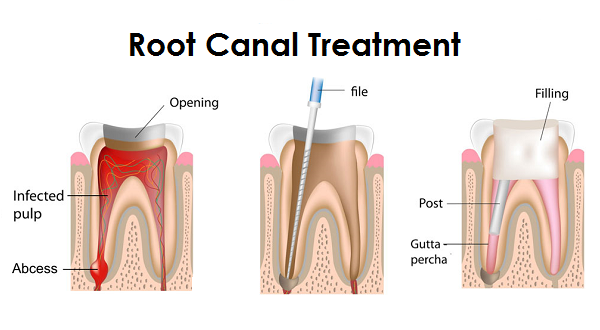Every year, millions of individuals seek are either referred to an endodontist totreattheir dental problems, or they actively seek one out on their own terms. Most of the time, however, people are unsure what an endodontist is and why they may need one, as dentists have become the normative image of who to appeal to when the health of your mouth is jeopardized.
Indeed, there is very little representation of endodontists in the media – typically, dentists are depicted as undertaking complicated root canal procedures, but it isn’t always the case that they are capable of doing so; this leaves a majority of people confronted with confusion when they finally do no need to undergo an endodontic procedure, such that they clumsily find themselves looking for information about root canals or other treatments.
Perhaps what you thought would be a simple cavity fill has turned into a more drastic treatment, and your dentist has referred you to an endodontic specialist – the following, then, is a run-down of some of the instances which necessitate endodontic intervention.
- Inflammation
The cause of root canals comes from when the pulp of the tooth is infected or inflamed. The pulp is where the nerve, blood cells, and soft tissue reside in your teeth. But root canals are not the only reason to seek out your endodontic specialist for treatment. Even if you have had a root canal, sometimes it doesn’t heal properly. This can cause additional pain that can last for months, sometimes even years. In this case, endodontic retreatment might be recommended. - Repeated Infections
Endodontic retreatment simply retreats the root canal that hasn’t healed properly. Your endodontist will reopen and clean the infected tooth, which will require removal of the crown and root canal filling materials. After the canal is cleaned, your endodontist will examine the area to make sure all obstructions are cleared. When the retreatment is completed, you will need to get a new crown from your dentist. - Microsurgery
Another reason you may need to seek out root canal therapy is due to microsurgery. Sometimes nonsurgical root canals are not sufficient for saving your tooth. In that case, your endodontist may recommend microsurgery which can repair microfractures in canals that are unseen in X-rays. Sometimes calcium deposits form in root canals and may need to be removed with microsurgery. - Cracked Teeth
Cracked teeth is another reason to seek out help from your endodontist. Whether from injury or wear and tear, a cracked tooth can bring sudden pain to pressure or temperature in your food. Endodontist specialize in restoring cracked teeth, and work on a case by case basis. Lastly, traumatic dental injuries, which usually result from sports incidents, can be treated by your endodontist. Traumatic dental injuries can range from chipped teeth to dislodged teeth.If you want more information about root canals and therapy, it is important to communicate with your dentist endodontist. And, while root canals are a fairly common occurrence in dentistry, it is a good idea to see an endodontist because the surgery can be far too complicated for run-of-the-mill dental surgeons; endodontists specialize in making sure you are treated individually, and are even equipped to see emergency cases quickly and efficiently, in order to minimize the amount of pain you would otherwise endure.
